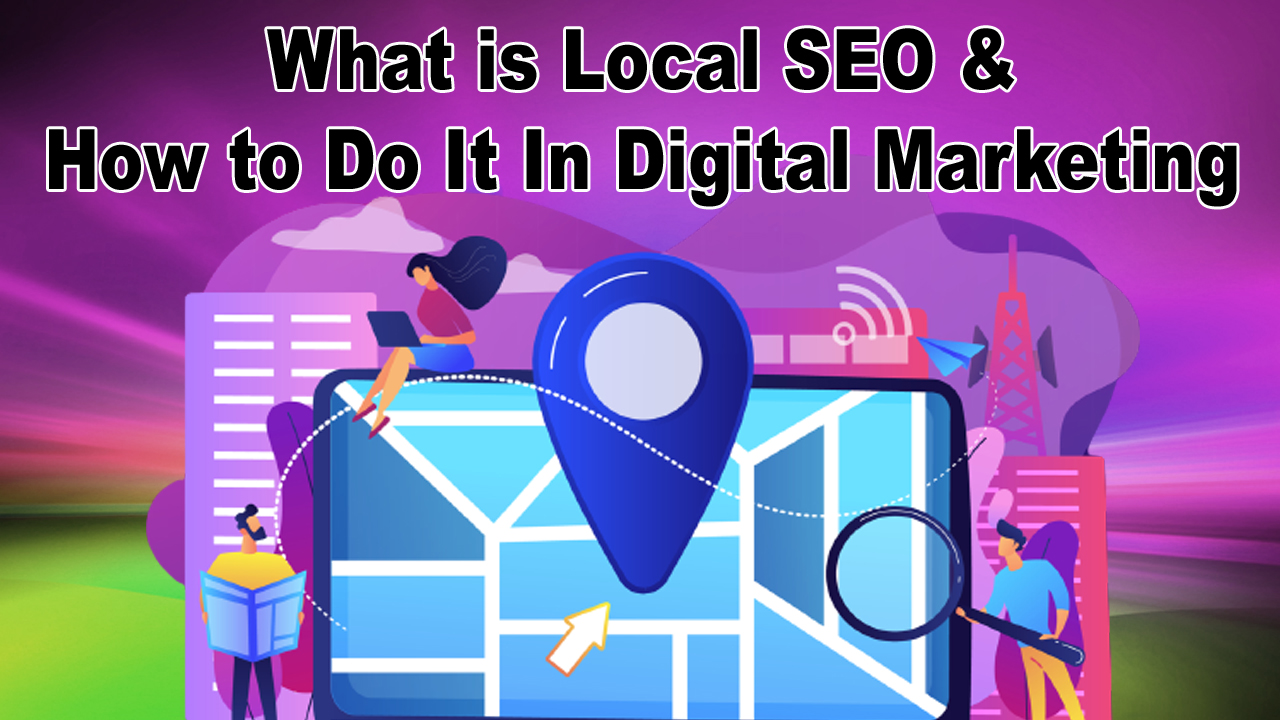
Dilshad Mushtaq is the founder and CEO of Best SEO Zone which is a prominent digital marketing agency based in Pakistan Since 2010. He is a professional website developer & Digital Marketer who can create any website and rank it on Google Page One.

In the evolving landscape of digital marketing the quest for online visibility and audience engagement has taken a decidedly local turn. Businesses whether they have a physical brick-and-mortar presence or serve specific geographic areas are increasingly recognizing the importance of Local SEO (Local Search Engine Optimization) in their marketing strategies. The ability to connect with nearby customers actively seeking products or services in their vicinity presents a powerful opportunity for growth. In this comprehensive guide, we will explore the ins and outs of Local SEO shedding light on what it is and how to implement it in your digital marketing endeavors effectively.
Local SEO is a specialized branch of search engine optimization that focuses on improving the online presence and visibility of businesses in local search results. It aims to connect potential customers with businesses in their immediate vicinity when they are searching for specific products or services. The primary goal of Local SEO is to ensure that your business appears in local search queries often containing location based keywords and ranks prominently in platforms like Google Maps Google Search and other search engines.
The importance of Local SEO cannot be overstated. As consumers increasingly turn to the internet to find local businesses products and services it has become a critical component of any comprehensive digital marketing strategy. Consider these statistics:
Let us delve into the practical aspects of implementing an effective Local SEO strategy in your digital marketing endeavors.
Claim and Verify Your GMB Listing: The first step in your Local SEO journey is to claim and verify your Google My Business listing. This free tool from Google allows you to manage how your business appears in Google Search and Maps.
NAP Consistency: Ensure that your business name address and phone number (NAP) are accurate and consistent across all online platforms. This consistency is crucial for trust and search engine ranking.
Detailed GMB Profile: Provide as much information as possible in your GMB profile including your business operating hours categories services and high-quality images. A well-optimized GMB profile can significantly boost your local visibility.
Understanding Local Keywords: Local SEO revolves around keywords with location-specific terms. Identify keywords that potential customers might use in local searches. For instance “plumber in New York City” or “Italian restaurant near me.”
Keyword Research Tools: Utilize keyword research tools such as Google Keyword Planner SEMrush or Ahrefs to identify relevant local keywords. Pay attention to search volume and competition to select the most effective keywords for your business.
Optimizing Your Website: Implement the selected local keywords in your website’s title tags meta descriptions headers and content. Make sure your website is a valuable resource for local searchers.
NAP on Your Website: Include your business’s NAP information on your website preferably in the footer to reinforce your location to both users and search engines.
Acquire high-quality local Backlinks: Build a network of high quality backlinks from local businesses organizations and directories. Local link building can significantly boost your local authority.
Participate in Local Events: Engage with your local community by participating in local events sponsoring activities or forming partnerships. These interactions can lead to valuable local backlinks and relationships.
Encourage Customer Reviews: Encourage satisfied customers to leave reviews on platforms like Google Yelp Facebook and industry-specific review sites. Reviews not only build trust but also impact your local search ranking.
Engage with Reviews: Respond to reviews whether positive or negative. Engaging with reviews shows your commitment to customer feedback and can enhance your online reputation.
Consistent Business Information: Ensure that your business information is consistent and up-to-date in online directories data aggregators and review sites. Services like Moz Local and Yext can help manage your citations.
Niche and Industry Directories: Seek out industry-specific and niche directories that are relevant to your business. Listing your business in these directories can improve your local authority.
MobileFriendly Website: With the increasing use of mobile devices for local searches having a mobile-friendly website is essential. Ensure that your website loads quickly and provides an optimal user experience on mobile devices.
Mobile Page Speed: Optimize your website for fast loading times on mobile devices. Google PageSpeed Insights can help you identify and fix mobile speed issues.
Create Local Content: Develop blog posts articles and other content that resonates with your local audience. Address local topics events and news to engage with your community and establish your brand as a local authority.
LocationBased Landing Pages: If you serve multiple locations consider creating location-based landing pages to cater to each area’s specific needs.
Structured Data: Implement schema markup to provide search engines with structured data about your business. This can enhance your search results listing and help search engines understand your content better.
Local Business Markup: Use schema markup to specify details like business hours location contact information and customer reviews. This markup can make your business more attractive in search results.
Active Engagement: Maintain an active and engaging presence on social media platforms to connect with your local audience. Share local content updates about your business and engage with your community to build a loyal following.
Shoppable Posts: If applicable consider using social media platforms with shoppable features to allow users to purchase products or services directly from your posts.
DataDriven Decisions: Use tools like Google Analytics Google Search Console and other analytics platforms to monitor the performance of your local SEO efforts. Track local keyword rankings and analyze the number of local searches leading to your website. This data will guide your adjustments and improvements.
Local SEO Audits: Periodically conduct local SEO audits to ensure that all aspects of your local SEO strategy are functioning optimally. Look for any discrepancies in your NAP information website errors or opportunities for improvement.
Seamless User Experience: Prioritize user experience on your website. Ensure that users can easily navigate your site find the information they need and have a positive experience. Fast loading times and mobile responsiveness are key components of a positive UX.
Location Information Accessibility: Make it easy for users to find your location information such as your address and contact details on your website. Include a clear map with directions for visitors.
Paid Local Promotion: Consider running local online advertising campaigns such as Google Ads or Facebook Ads. These campaigns allow you to target local customers specifically. You can set your budget and customize your targeting options to reach potential customers in your area.
GeoTargeting: Use geotargeting features in online advertising platforms to ensure your ads are shown to users in specific locations. This can be particularly effective for promotions special offers and events.
Local SEO with its multifaceted strategies and techniques is a powerful tool for businesses seeking to connect with local customers in an increasingly digital world. By understanding the importance of Local SEO mastering its key elements and continuously optimizing your online presence you can tap into the vast potential of local marketing and propel your business to new heights.
In today’s competitive landscape, Local SEO isn’t just an option; it’s a necessity for businesses looking to thrive in the digital age. As consumers rely more on online search to make informed decisions investing in Local SEO can yield significant returns by putting your business on the map and directly in the path of potential customers.
To truly excel in Local SEO remember that it’s an ongoing journey. Stay vigilant adapt to changing algorithms and consumer behaviors and embrace innovation. By consistently implementing best practices and refining your local SEO strategy you can establish a strong local online presence and position your business for success in the digital marketing landscape.
In closing Local SEO isn’t just a digital marketing strategy it’s a gateway to building lasting connections with your local community fostering trust and driving real-world business growth. Embrace the power of Local SEO and your business will undoubtedly reap the rewards.

Dilshad Mushtaq is the founder and CEO of Best SEO Zone which is a prominent digital marketing agency based in Pakistan Since 2010. He is a professional website developer & Digital Marketer who can create any website and rank it on Google Page One.

